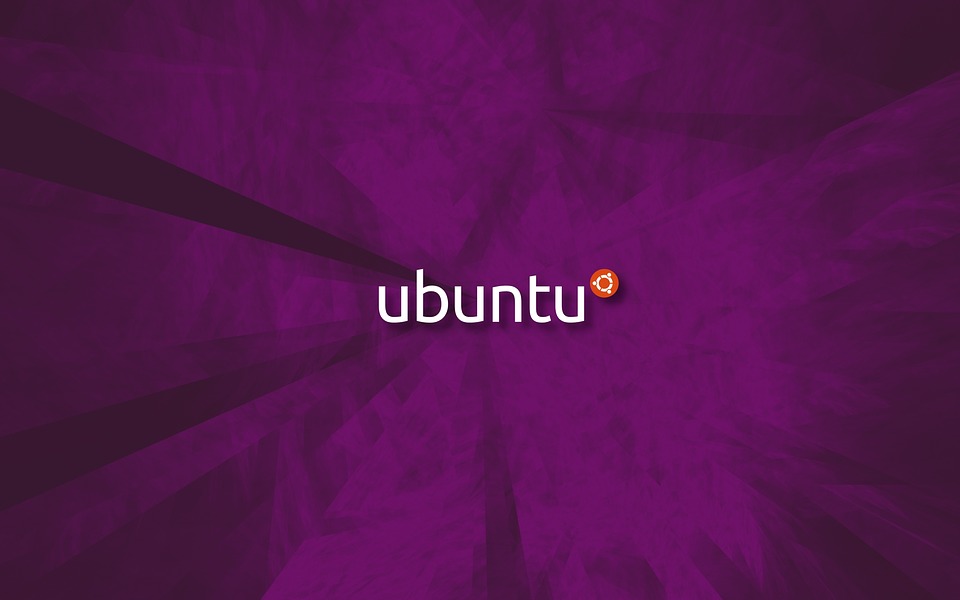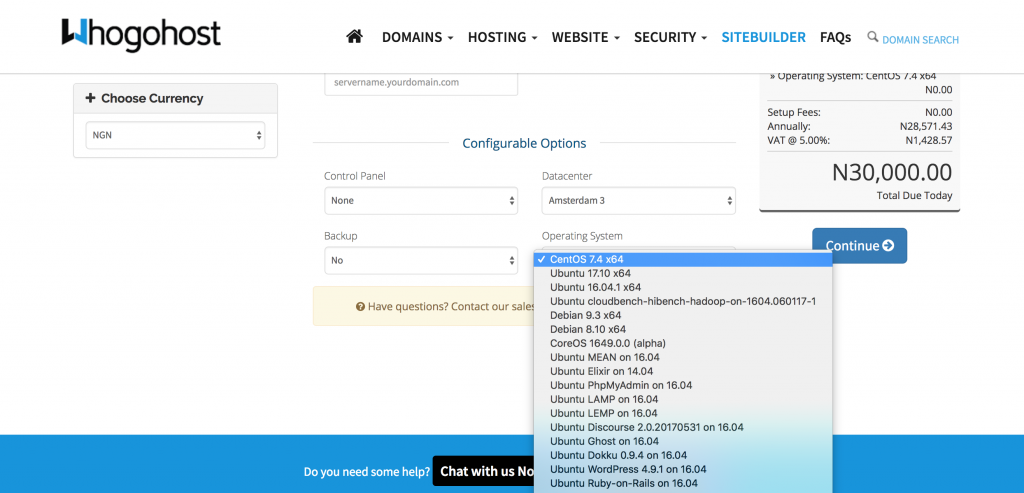Wondering what is the right platform to host your application? Read on because this guide is created to give you an insight on how to host and deploy your application on our cloud platforms.
Choosing the right Cloud Operating System
Whogohost offers different cloud platforms to provide you with out of the box solutions for deploying your application developed with different platforms. Knowing the right platforms to use will save you a lot of configuration time and let you get started with deploying your application in no time. In this tutorial, we will highlight which of our cloud platforms is most suitable for your app deployment.
CentOS 7.4 x64
CentOS is an open source enterprise Linux distribution built on Red Hat Enterprise Linux (RHEL). It is one of the most popular Linux platforms with a predictable base to build and extensive resources to build, release, test and maintain codes. We can use CentOS to deploy how cloud applications.
Ubuntu 16.04 x64 Server
Ubuntu Operating System is an open source Linux based distribution built on Debian. architecture. It works perfectly on network servers with different server types with enterprise features for managing servers efficiently and personal computers. It is the most popular operating system used for running cloud platforms and Linux is the most popular hosting server. Ubuntu 16.04 is a stable release of Ubuntu OS with lots of features and technical support.
Ubuntu MEAN
This is suitable for full stack Javascript developers. Selecting this cloud platform (MongoDB, Express, Angular, Node) means that your server will be pre-installed with important features to get your Mean stack application up and running. MongoDB is the leading NoSQL database.
Express is a node.js framework for building single or multiple page applications with a lot of robust features. Angular is a frontend framework that allows you to extend HTML vocabularies for your web applications. Node.js is a platform build on top of google chrome’s JavaScript runtime for building scalable applications.
Ubuntu LAMP
Ubuntu Lamp platform is suitable for server-side applications built with PHP and MYSQL database. This platform comes with Apache, PHP and MySQL pre-installed on our Linux platform which will make deployment of our PHP application seamless. PHP is one of the most popular server-side scripting languages for building dynamic and interactive web applications.
Ubuntu LEMP
Ubuntu LEMP is a variation of LAMP stack which is also known as LNMP (Linux, Nginx, MySQL, PHP) is an open source platform that enables a server to host and run web applications. The server comes pre-installed with Linux, Nginx server, PHP (programming language) and MySQL (database management system).
Ubuntu NodeJs
Ubuntu running NodeJs is a platform pre-installed with NodeJs which makes it easy to deploy node.js applications. It comes with all important Node.js modules to get your app ready for deployment. You can check a guide on Running NodeJs App on Ubuntu to learn how to deploy your applications.
Ubuntu WordPress
WordPress is open source and the most popular content management system in the world. Selecting Ubuntu WordPress to install a fresh and latest version of WordPress on your server along with a database. This platform is suitable for bloggers and website owners that love to work with WordPress.
Ubuntu Ruby on Rails
Ubuntu Ruby on Rails is suitable for deploying applications built with ruby on rails. The server comes with ruby installed on the server which will allow you to build and deploy rails framework applications. Ruby on Rails is a server-side scripting language for building model-view-controller MVC applications.
Ubuntu Django
Django developers can easily deploy their Django applications on an Ubuntu server pre-installed with python and Django framework. Django is an open source and high-level web framework built using python programming language.











